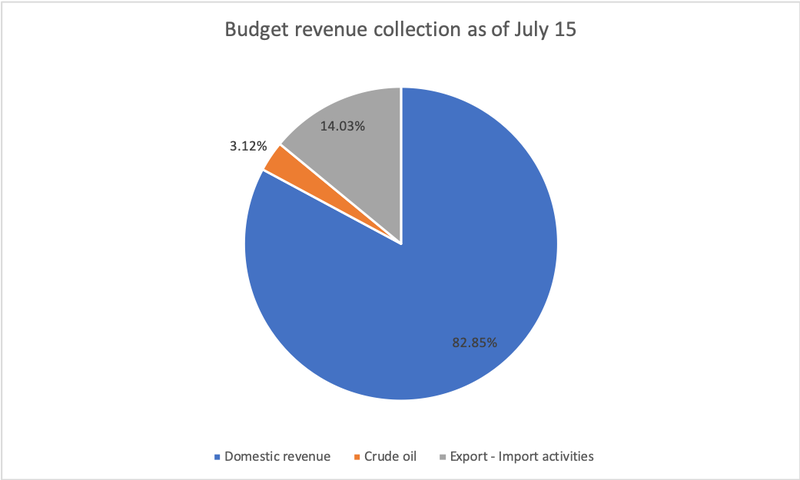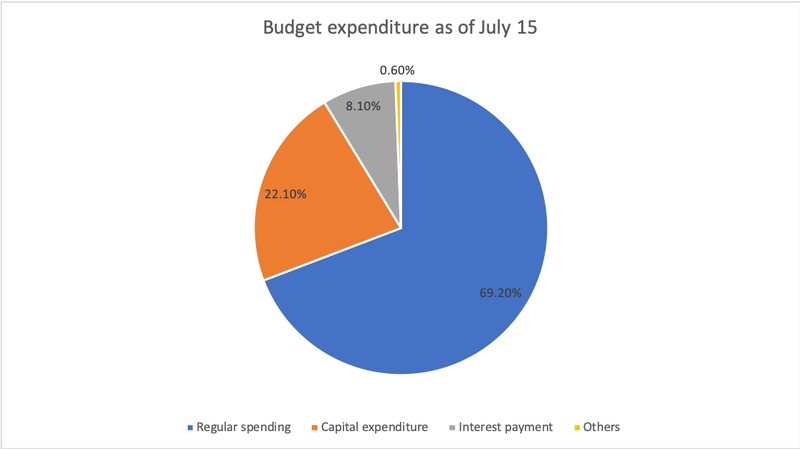Vietnam fiscal deficit widens to US$4.3 billion in 7 months on Covid-19
As of July 15, budget revenue collection reached VND697.5 trillion (US$30.17 billion), equivalent to 46.1% of the year's estimate.
Vietnam recorded a state budget deficit of VND101.1 trillion (US$4.37 billion) in the year to July 15, 2020, a stark contrast from a budget surplus of VN114.84 trillion (US$4.96 billion) in the same period of last year, according to the General Statistics Office (GSO).
| Data: GSO. Chart: Ngoc Mai. |
The large deficit was due to the government’s supporting programs in forms of tax deferrals and delay in payment of land rental fees, while more financial resources are mobilized to support the economic recovery process and those affected by the pandemic, stated the GSO.
As of July 15, budget revenue collection reached VND697.5 trillion (US$30.17 billion), equivalent to 46.1% of the year's estimate.
Upon breaking down, domestic revenue during the period stood at VND577.3 trillion (US$24.97 billion), equivalent to 45.7% of the year's estimate. Of the sum, the state sector contributed VND67 trillion (US$2.89 billion), or 37.7% of the year's estimate, the FDI sector grossed VND96.8 trillion (US$4.18 billion), meeting 42.3% of the plan.
Moreover, VND103.2 trillion (US$4.46 billion) was collected from non-state industrial, commercial and service taxes, equaling 38.1% of the plan, and VND30 trillion (US$1.29 billion) from tax on environmental protection or 44.3%.
Revenue from import-export activities hit VND98 trillion (US$4.23 billion), or 47.1% of the year's estimate, and that from crude oil totaled VND21.9 trillion (US$947.25 million), meeting 62.1% of the year's plan.
Additionally, personal income tax contributed VND66.7 trillion (US$2.88 billion) to the state budget or 51.8% of the year's estimate, and land use rights VND71.1 trillion (US$3.07 billion), or 74.1% of the plan.
| Data: GSO. Chart: Ngoc Mai. |
Meanwhile, state budget expenditures as of July 15 totaled VND798.6 (US$34.54 billion), equivalent to 45.7% of the year's plan. Of the total, regular spending reached VND552.5 trillion (US$23.89 billion) or 52.3% of the plan. Capital expenditure reached VND176.4 trillion (US$7.63 billion) or 37.5%, and interest payment, VND64.6 trillion (US$2.79 billion) or 54.6%.
The Ministry of Finance estimated fiscal deficit could increase to 5 – 5.1% of GDP, significantly higher than the target of 3.4% (excluding debt principal repayments) set in December 2019.














